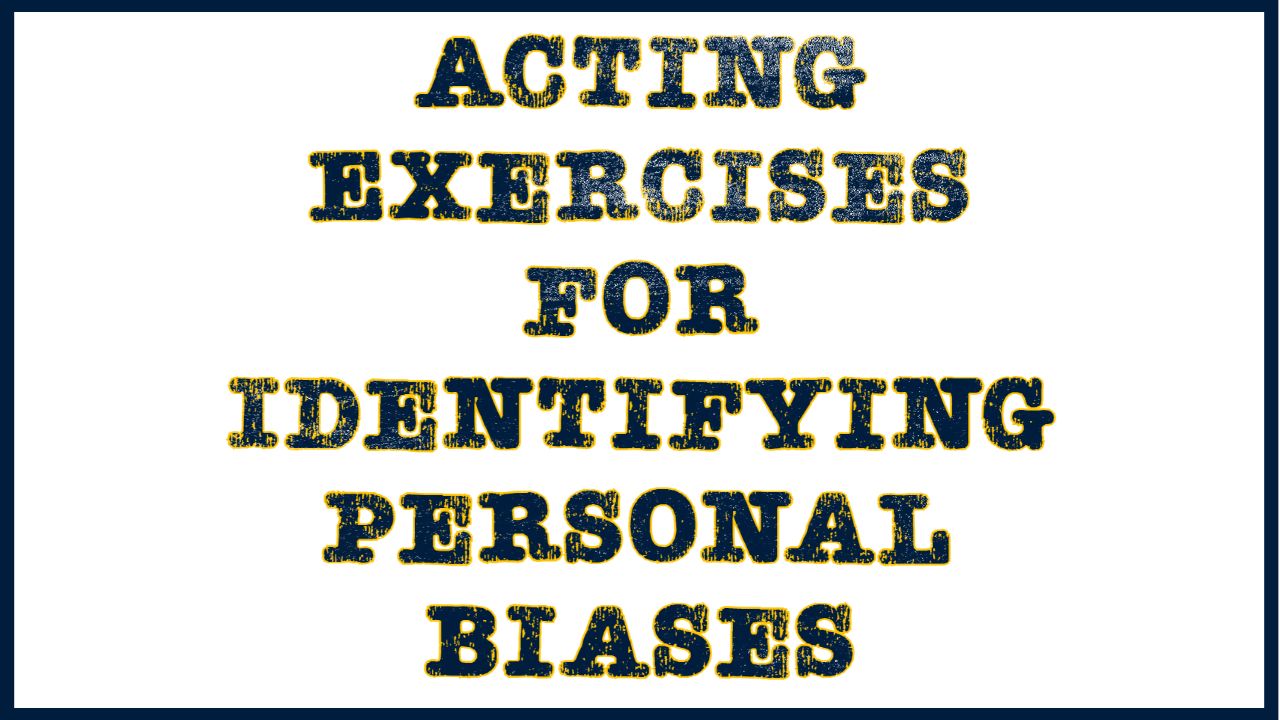
Acting Exercises for Identifying Personal Biases
Acting isn't solely confined to the realm of art. It's a versatile craft that extends into the realm of personal growth and development, specifically in identifying and challenging personal biases. Understanding these biases is essential for honing interpersonal communication skills.
Personal biases can subtly color our perceptions and reactions. They are the subconscious tendencies that cause us to lean towards or against certain individuals or groups. Today, we will uncover how acting methods can unmask these biases.
Role Reversal: Walk in Their Shoes
The Role Reversal technique, straight from the actor's toolkit, is incredibly potent in revealing personal biases. The practice of stepping into another's shoes and seeing the world from their vantage point pushes us to temporarily abandon our biases.
Select a character from any medium who starkly contrasts you. Preferably, it should be someone you often find yourself disagreeing with. Immerse yourself in their psyche, their motivations, their responses. Act out their reactions in varied scenarios. This process might bring forth discomfort or resistance within you, hinting at your biases.
Improvisation: The Unscripted Exposure
Another technique borrowed from the acting world, Improvisation, or "improv," aids in unearthing biases. Improv is all about reacting in the moment, responding authentically to the unpredictability of your scene partner.
Try this with a friend: create a scene involving characters drastically different from your usual selves. Keep an eye on the assumptions you make about these characters, your reactions, and judgments. The raw and unplanned nature of improv can expose hidden biases.
Emotional Recall: Confronting Biases
Emotional Recall, introduced by acting teacher Constantin Stanislavski, allows actors to access personal memories to evoke emotions in their performance. This method can be tweaked to grapple with biases.
Reflect on a past moment when you encountered strong bias. Dive into the feelings attached to that moment. Next, write a monologue where you address this bias. This exercise might be uncomfortable but offers valuable insight into your biases.
Understanding our biases is paramount in developing robust interpersonal communication skills. The goal here isn't to "fix" biases overnight, but to promote self-awareness and understanding, which are the stepping stones towards change. As we better understand others through these acting exercises, we indirectly understand ourselves, encouraging empathy, confronting biases, and subsequently improving our interpersonal communication.
Sign up to receive my weekly email with updates, fresh takes, advice, & tips on building better fundraising data.
